CIA Sponsored Terror, Civil Liberties, Criminalizing Dissent, FBI Intrusion, Guantanamo, Habeas Corpus, Human Rights, NSA Spying, Political Prisoner, Prison Industry, Supreme Court, Surveillance, Torture, Truth to Power, War Resister
Podcast: Play in new window | Download
Update:
- Remembering Julian Bond, Social Activist, Civil Rights Leader, Politician, Professor and Author.
—-
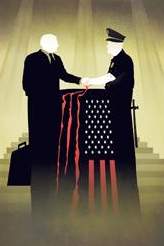
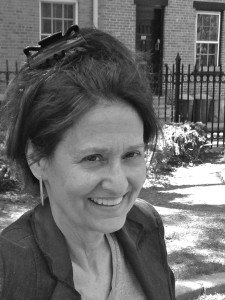
Heidi Boghosian: Prevent Police Killings Before They Happen
America has awakened in the past year to the epidemic of police killings of unarmed civilians, many of whom are African-American. The list of names grows longer by the week — Eric Garner, Michael Brown, Tamir Rice, Freddie Gray, Rekia Boyd, John Crawford and Sandra Bland to name several recently. Each time one of these criminal acts is committed, a cry goes up to prosecute the police officer responsible and bring justice to the victim. Read More.
Attorney Heidi Boghosian is the executive director of the A.J. Muste Memorial Institute, a nonprofit charitable foundation providing support to the nonviolent movement for social change. Before that she was executive director of the National Lawyers Guild. She is author of the book “Spying on Democracy: Government Surveillance, Corporate Power, and Public Resistance” (City Lights, 2013).
—-
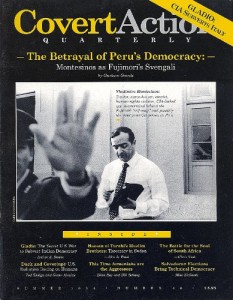
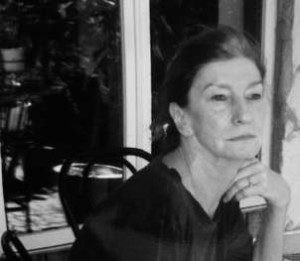
Ellen Ray: Co-Publisher of Covert Action Information Bulletin
Last week family and friends gathered at St Marks In The Bowery Church to remember documentary filmmaker, publisher, journalist and activist Ellen Ray. Ellen Ray was co-publisher of the magazine Covert Action Information Bulletin, which exposed CIA covert actions around the world, publishing the names of hundreds of CIA agents. As a result, the law changed (The Intelligence Identities Protection Act of 1982) making it illegal. As head of Sheridan Square Press, Ellen Ray published the memoir of New Orleans District Attorney Jim Garrison, which became the basis of Oliver Stone’s film, “JFK.” Ray is survived by her husband, attorney Bill Schaap, she was 75. Text of the speech by Michael Smith. Here is the video produced Joe Friendly.
—-
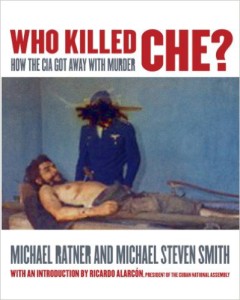
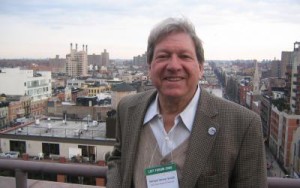
Different Ways to Skin a Cat: From the US Assassination of Che to Obama’s Recognition of Cuba
We hear a speech delivered by our own Michael Smith at Socialism Conference in Chicago titled Different Ways to Skin a Cat: From the US Assassination of Che to Obama’s Recognition of Cuba. The highpoint of U.S. counter-revolutionary policy towards Latin America came with its murder of Che Guevara, in Bolivia and the overthrow of governments including Allende’s in Chile, thus isolating Cuba throughout Latin America. Now the U.S. is isolated and the American government has had to change its tactics. The strategy of overthrowing the gains of the Cuban revolution and capitalist restoration remain.
—————————————————
Afghanistan War, CIA Sponsored Terror, Civil Liberties, Criminalizing Dissent, Death Penalty, FBI Intrusion, Habeas Corpus, Human Rights, Political Prisoner, Prison Industry, Supreme Court, Surveillance, Truth to Power, War Resister
Podcast: Play in new window | Download
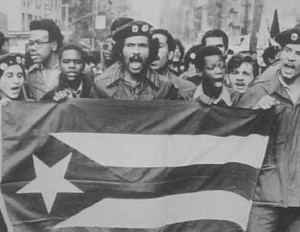

Lawyers You’ll Like : Attorney Linda Backiel
As part of our Lawyers You’ll Like series today we speak with attorney Linda Backiel. She’s a lawyer and poet living in San Juan, Puerto Rico. She’s played an instrumental role in defending independentistas in the fight against colonialism in Puerto Rico. As part of that struggle she defended those who were ultimately successful in kicking the military out of Vieques. A small island near Puerto Rico. For 40 years of law practice, she devoted much of her energy to the defense of political prisoners often with her friend and mentor, Lenny Weinglass. A Poem For Lenny Weinglass.
Guest – Attorney Linda Backiel, a criminal defense attorney and poet living and practicing law in San Juan, Puerto Rico. Here is Linda Backiel’s transcript from the talk she gave at the celebration of the 50th anniversary of the Criminal Justice Act.
—-
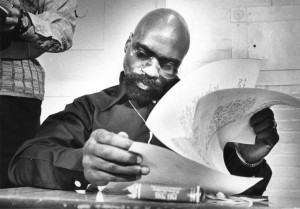
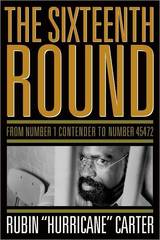
Rubin “Hurricane” Carter 1937-2014
In April of this year, celebrated boxer and prisoner-rights activist Rubin “Hurricane” Carter died at the age of 76. He had become an international symbol of racial injustice after his wrongful murder conviction forced him to spend 19 years in prison. Carter was arrested for a triple murder in his hometown of Patterson, New Jersey. He said he was innocent, was convicted by an all white jury, and sentenced to three consecutive life sentences. In 1976, the New Jersey State Supreme Court overturned his conviction on grounds the authorities withheld material evidence from the defense. But Carter was convicted again in a second trial in 1976. In 1985, that conviction was overturned by a U.S. district court judge, who concluded the state made an unconstitutional appeal to racial prejudice. In 1988, the Passaic, New Jersey, Prosecutor’s Office dropped all charges against Carter.
Attorney Myron Beldock:
- He was a defendant in a criminal case in New Jersey involved the triple shooting and three murders of 3 people in the Lafayette bar in Patterson, New Jersey.
- He and his co-defendant John Artis were represented at the first trial and they lost, (convicted) and Rubin started his campaign to get out of jail and wrote his book the 16th Round.
- He was charismatic and powerful, a great thinker, very very intellectually strong person as well as being spiritually strong.
- Almost a typical case, high profile case, where you get people who are vulnerable and easily manipulated because of their need for their own benefits to falsely testify.
- We set aside the convictions when we learned about the benefits that were given to the witnesses.
- We went again to trial in 1975. At that time the atmosphere had changed. There was a new prosecutor, they came up with a theory that it was actually a racial revenge killing.
- Earlier that night, a white former bar owner had shot and killed the black purchaser of the bar from him.
- That was always known and there was no motives attributed to the killings in the first trial but the second trial really based on speculation and bias, they argued persuasively to the jury that this was a racial revenge killing.
- Mr. Bellow who was the supposed eye witness who testified, there were two of them in the first trial, was being questioned by me on the stand as to why he recanted his recantation. The prosecutor persuaded him to again tell the story he told at the first trial, identifying Rubin and John and I was trying to establish that they had falsely manipulated him when I was pulled into the chambers along with my co-counsel Louis Steele who represented John Artis and told that if I question him further, the jury would learn that he passed the lie detector test, supporting what he said at the first trial. Supporting his identification (of Rubin Carter)
- We did have that test. It seemed like that was the result because that’s the way it was written. In fact that was a fraud.
- The polygraph results were completely opposite of what they were purported to be.
- The prosecutors in that case, two of them became judges, rewarded for what they did.
- Rubin was not a popular person, he had been an outspoken civil rights person. It was a cesspool of rumors without any evidentiary basis.
- The entire community there almost in Passaic New Jersey treated us like we were the devil.
- It was the coldest community reception I ever encountered in any place.
- Rubin would call every year (from Canada) on the anniversary of his release. He got a group of Canadian do-gooders and free thinkers to join him in fighting to set aside convictions for people who were wrongly convicted in Canada.
- He would vet the briefs that we sent. He was a very unusual client.
- Rubin refused to act as a prisoner because he wasn’t anyone who was guilty he said.
- So, he didn’t eat prison food, he didn’t take prisoner assignments, he didn’t wear prison clothes and somehow or other he was able to pull that off.
- People think of it as being another time, I’ve been practicing law long enough and I don’t think anything changes.
- The same kind of bias runs deep throughout the community its just masked somewhat differently.
- You make your luck in these cases, you have to forge ahead.
- His insistence on being an innocent person and will not compromise with the system is the kind of inspiration that pushes us on as lawyers.
Guest – Attorney Myron Beldock, graduated from Erasmus Hall High School in 1946, Hamilton College in 1950 and Harvard Law School in 1958. He served in the U.S. Army from 1951 to 1954 and as an Assistant U.S. Attorney in the Eastern District of New York from 1958 to 1960. After several years as an associate with a small New York City firm and as a single practitioner, he brought together two friends and former Assistant U.S. Attorneys, Elliot Hoffman and Larry Levine, to form Beldock Levine & Hoffman in 1964. He is best described, by his own definition, as an old-time general practitioner. He concentrates on trial and appellate litigation, in state and federal courts, in defense of criminal charges and in pursuing plaintiffs’ civil rights actions based on police and prosecutorial misconduct and employer and governmental discrimination. He regularly consults and defends charges of professional discipline. He represents plaintiffs and defendants in a wide variety of personal and business related matters, working with others in the firm’s various practice areas.
———————————————-
CIA Sponsored Terror, Civil Liberties, Criminalizing Dissent, Gaza, Habeas Corpus, Human Rights, Political Prisoner, Prosecution of the Bush Administration, Supreme Court, Targeting Muslims
Podcast: Play in new window | Download
Updates
- Michael Ratner Update: Iraqi Woman Sues Bush Administration for Illegal Iraq War
- Remembering Ronnie Gilbert from The Weavers
—-

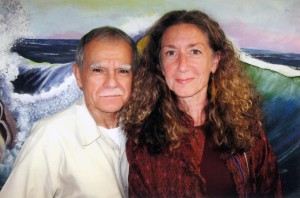
The Campaign To Free Oscar Lopez Riviera
There’s been a long struggle by Puerto Ricans here in the United States for the independence of their native land Puerto Rico. Oscar Lopez Riviera was one of these people. He was framed up on the political charge of seditious conspiracy and has been in prison since the 1980s. All his co-defendants in the original trial have now been freed but he remains locked up and there is a campaign going on in the United States right now to free Oscar Lopez Riviera.
Guest – Attorney Jan Susler joined People’s Law Office in 1982 after working for six years as a Clinical Law Professor at the legal clinic at Southern Illinois University’s School of Law, Prison Legal Aid. At the People’s Law Office she continued her litigation and advocacy work on prisoners’ rights issues and also took on representing people wrongfully imprisoned, falsely arrested, strip searched, or subjected to excessive force by police officers.
Her long history of work on behalf of political prisoners and prisoners’ rights includes litigation, advocacy and educational work around federal and state control unit prisons in the U.S. Her work with the Puerto Rican Independence Movement and with progressive movements challenging U.S. foreign and domestic policies has been a constant throughout her 36 years as a lawyer. She was an adjunct professor of criminal justice at Northeastern Illinois University, and taught constitutional law at the University of Puerto Rico. For over three decades she has represented Puerto Rican political prisoners, and she served as lead counsel in the efforts culminating in the 1999 presidential commutation of their sentences. She continues to represent those who remain imprisoned.
—–
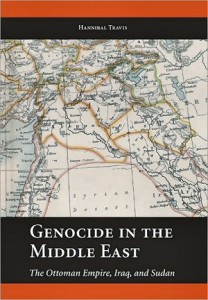

Genocide In The Middle East, The Ottoman Empire, Iraq and Sudan
Here on Law and Disorder we’ve discussed genocide. Genocide of course, we’ve most recently discussed with our co-host whose family was effected by the Armenian genocide, we’ve discussed that genocide. We’ve also discussed the question of whether what has happened to Palestinians the Middle East also constitutes as genocide.
Guest – Hannibal Travis teaches and conducts research in the fields of cyberlaw, intellectual property, antitrust, international and comparative law, and human rights. He joined FIU after several years practicing intellectual property and Internet law at O’Melveny & Myers in San Francisco, California, and at Debevoise & Plimpton in New York. He has also served as Visiting Associate Professor of Law at Villanova University, and a Visiting Fellow at Oxford. He graduated summa cum laude in philosophy from Washington University, where he was named to Phi Beta Kappa. He graduated magna cum laude from Harvard Law School, where he served as a member of the Harvard Journal of Law and Technology and the Harvard Human Rights Journal, and as a teaching assistant in Harvard College. After law school, Professor Travis clerked for the United States District Court in Los Angeles, California. Professor Travis has published articles on copyright, trademark, and antitrust law in the Berkeley Technology Law Journal, Hofstra Law Review, the Journal of the Copyright Society of the USA, Notre Dame Law Review, Pepperdine Law Review, University of Miami Law Review, Vanderbilt Journal of Entertainment and Technology Law, Virginia Journal of Law and Technology, and Yale Journal of Law and Technology.
———————————————
CIA Sponsored Terror, Civil Liberties, Cuba, Habeas Corpus, Human Rights, Prison Industry, Supreme Court, Surveillance, Truth to Power, War Resister
Podcast: Play in new window | Download
Updates:
- Ireland Same Sex Marriages
- DOJ Reaches Settlement With Cleveland Over Police Excessive Use Of Force
- Inquiry to Examine Racial Bias in the San Francisco Police
- Wyoming Criminalizes Sharing Photos And Citizen Science
—–
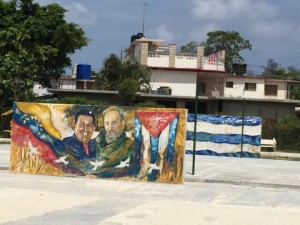
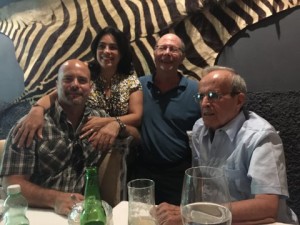
Understanding The Cuban Reality: Michael Ratner
Our own Michael Ratner returns from Cuba and dispatches this update. The United States officially takes Cuba off the terrorist list. Cuba was placed on the terrorist list years ago along with Iran, Syria and Sudan. Getting to Cuba is easier now that travel restrictions are decreased. Michael explains the importance in how Cuba maintains its fundamental economic rights in a non-capitalist government structure. Cuba also represents solidarity with the oppressed around the world and shares his personal experiences at Revolution Square in the early 70s. As the economic embargo continues to impact many facets of life for the people of Cuba, Michael Ratner points out the specific trade lifted by the Obama Administration were goods going from the United States to Cuba and not Cuba selling to the United States. The goal of every U.S. administration was to choke off and kill the Cuban Revolution. Lastly, Michael asserts that Cuba won’t become a U.S. neo-colony with IMF austerity plans privatizing state run enterprise.
Law and Disorder Co-host Attorney Michael Ratner, President Emeritus of the Center for Constitutional Rights (CCR), a non-profit human rights litigation organization based in New York City and president of the European Center for Constitutional and Human Rights (ECCHR) based in Berlin. Ratner and CCR are currently the attorneys in the United States for publishers Julian Assange and Wikileaks. He was co-counsel in representing the Guantanamo Bay detainees in the United States Supreme Court, where, in June 2004, the court decided his clients have the right to test the legality of their detentions in court. Ratner is also a past president of the National Lawyers Guild and the author of numerous books and articles, including the books Who Killed Che? How the CIA Got Away With Murder, The Trial of Donald Rumsfeld: A Prosecution by Book, Against War with Iraq and Guantanamo: What the World Should Know, as well as a textbook on international human rights.
—–
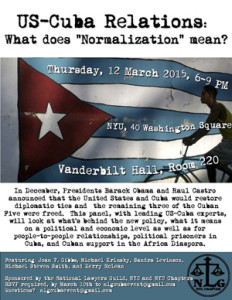
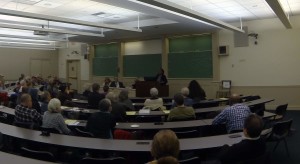
US-Cuba Relations: What does “Normalization” Mean?
In December, Presidents Barack Obama and Raul Castro announced that the United States and Cuba would restore diplomatic ties and the remaining three of the Cuban Five were freed. This panel, with leading US-Cuba experts,will look at what’s behind the new policy, what it means on a political and economic level as well as for people-to-people relationships, political prisoners in Cuba, and Cuban support in the African Diaspora.
Speaker – Sandra Levinson, founder and Executive Director of the Center for Cuban Studies in New York City and Director of the Center’s Cuban Art Space who has traveled to Cuba more than 300 times, often as consultant to major news organizations. Sponsored by the National Lawyers Guild, NYC and NYU Chapters and International Committee.
——————————————————–
CIA Sponsored Terror, Civil Liberties, Criminalizing Dissent, FBI Intrusion, Guantanamo, Habeas Corpus, Human Rights, Political Prisoner, Prison Industry, Supreme Court, Surveillance, Targeting Muslims
Coming Up Next Week Police Shooting Reaches Supreme Court Exclusive Michael Avery Interview
Podcast: Play in new window | Download
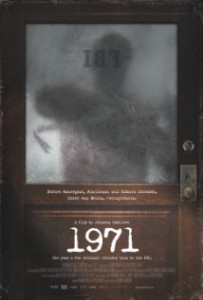
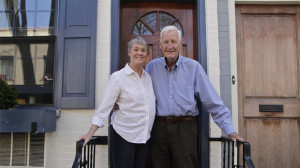
1971
On March 8th 1971, a group of anonymous individuals calling themselves the Citizen’s Commission to Investigate the FBI, broke into an FBI field office in Media, Pennsylvania. They stole thousands of government documents. Among the documents was proof that the FBI under J. Edgar Hoover, was spying on law abiding citizens. The program is known as COINTELPRO and it was used to monitor, manipulate and disrupt social and political movements in the United States. The Citizens’ Commission to Investigate the FBI has been documented recently in a highly acclaimed film titled 1971, directed by Johanna Hamilton.
Johanna Hamilton:
- I consider myself to have the good fortune to have known Betty Medsger, the author of the Burglary, for many years.
- She and I had a personal relationship that long predated our professional collaboration.
- Over time she came to share the outlines of the story with me and it sounded completely remarkable.
- She introduced me to a few members of the Citizens Commission to Investigate the FBI. The 40th anniversary was approaching.
- They wanted the story, which was so little known, to have a larger life.
- To be clear, Betty worked many years on the book. She’s done remarkable and profound research and I joined much later and was the net beneficiary of so much of her research.
- There were four years where we worked in tandem.
- When I showed the film to the Citizens Commission, while the credits rolled, Keith (Keith Forsyth – the lock picker) especially, he got up and said, good job.
- It’s a period of history I’ve been fascinated with since I was a teenager. It was the story of these extraordinary ordinary individuals who had put everything on the line and taken such great personal risk to benefit democracy.
- They trained themselves for one night of crime. They steal all the documents in the office, leak them to the press. They send them to major newspapers, and to a couple politicians. In the end, the Washington Post is the only newspaper that decides to publish the first stories.
- Those first stories reveal with out question illegal government spying on citizens who are going about their daily lives and exercising their First Amendment rights.
- Betty wrote the first stories in the Washington Post and the story fades a little from the headlines. The Pentagon Papers explode 3 or 4 months later. Daniel Ellsberg is on the scene.
- Then our story picks up again.
- It seems inconceivable now but Hoover had been director for over 50 years, and that’s no longer possible.
- Some people who seen the film before say they were really moved by the Church Committee hearings.
- Attorney David Kairys is a huge figure in Philadelphia and yes back in the day he was contacted by two members of the Citizens Commission. He didn’t know what they had done, but if they got caught, they could call him day or night.
- We were reaching the tail end, or we thought we were reaching the tail end of the film when the Snowden revelations happened.
- The Snowden revelations were one thing, absolute bombshell, but prior to that we had a couple of other instances. Back in 2011, September, there were raids all across the country, animal rights activists, environmental groups. One night Brian Williams introduced the news and described these raids and said you know its reminiscent of Hoover back in the 1970s.
- We had whole scenes cut together with that footage and debated and deliberated on that. In the end erred on the side of excluding it.
- It’s opening here in New York City and will start rolling out across the country. If you check our website we update the cities that it will show at. It will be on PBS, Independent Lens at the end of May. 1971Film.com
Guest – Johanna Hamilton, director of the film 1971. She also co-produced Pray the Devil Back to Hell, which won Best Documentary at the Tribeca Film Festival in 2008 and was shortlisted for an Academy Award. Johanna has produced nonfiction programs for PBS, The History Channel, National Geographic, A&E, Discovery Channel, and The Washington Post/Newsweek Productions, including September’s Children, a documentary for PBS exploring how children around the world are affected by terrorism and war.
—–
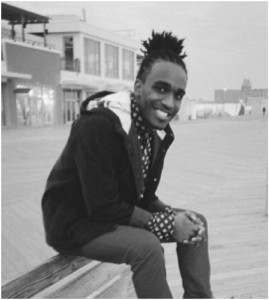
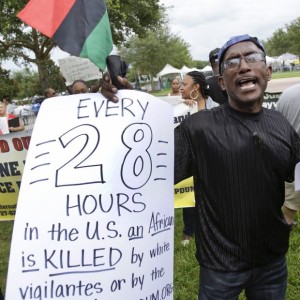
Inspiring, and Awakening Political Activism in Youth
Young people across the nation have played a critical role in taking to the streets to protest social inequities, from Ferguson, Missouri to New York City. In a recent article in the journal Socialism and Democracy, “The Roots of Mass Incarceration: Locking Up Black Dissidents and Punishing the Poor,” writer, activist and youth pastor Nyle Fort describes how he became politically active and who inspired him. We talk with Nyle about the status of protest in this country, the forces of oppression, how young people are involved and how he helps inspire them.
Nyle Fort:
- I graduated from Morehouse College and ended up going to seminary. I was already a licensed and ordained preacher but I wasn’t politicized yet.
- I had already been involved in the community via the church doing speaking engagements with youth and things like that.
- It wasn’t until I got into Princeton Theological Seminary that I began to get politicized.
- The way that it happened was I was taking an introductory seminary class called Systematic Theology with a professor Mark Taylor. In that class he actually had Mumia Abu-Jamal call in live from death row.
- When I heard him speak, I stopped in my seat. This man who I knew nothing of was speaking to me that was moving, not only me but I could tell the entire classroom and doing so by a 6 foot, by 10 foot cell. A cell that he had been in for 30 years, longer than I had been alive.
- Two weeks later I found myself through Mark Taylor at my first rally December 9, 2011. Two days after Mumia had been released from death row.
- I read the New Jim Crow very quickly, then Angela Davis’ works. That was really the beginning for me.
- I entered activism through a prison abolitionist lens, through Mumia.
- The rally for me was an embodiment of the things Mumia was talking about.
- I preach. I was at First Baptist Church in Lincoln Gardens. It’s one of the largest black churches in New Jersey. My style of ministry was evolving as I was being radicalized and politicized.
- I tried to do a lot of social justice work. We were writing letters to our incarcerated brothers and sisters as forms of religious activism.
- I discovered a prophetic religious tradition that comes from a black liberation theological perspective.
- When I was on the bus ride back from Ferguson I was really mad. Mad as hell because I felt there was a relative silence from the church, particularly the black church.
- I believe in love not as a word but as a work.
- When I engage with youth, I try to practice a love that is material. I tell young people, I love you more than they hate you.
- We have to deal the trauma and the pain that we inherit as black people living in the western world and all around the world.
- Love for me is a critical, not a politic that we can talk about, but a practice we can embody and engage in everyday. That has material life.
- We’re going to take Cornell West’s worlds seriously that justice is what love looks like in public, then we have to have a love that’s expansive enough to be material and to be felt.
- Black Lives Matter particularly as a network has articulated a feminist politic, a black feminist politic, a queer politic that is forcing us to live out our intersectionality.
- What we’re not talking about enough is that’s messy, and its not romantic.
- I think of oppression as institutionalized lovelessness. Let’s love each other in ways that causes each other to act.
- Twitter – @nylefort
Guest – Nyle Fort – Nyle is a Master’s of Divinity candidate at Princeton Theological Seminary, a youth pastor, freelance writer, and grassroots community organizer based in Newark, New Jersey. He was very active during the protests in Ferguson, Missouri and New York City.
—————————————————————-

Please help support Law and Disorder by clicking on Fractured Atlas graphic. This radio show is now a sponsored project of Fractured Atlas, a non-profit arts service organization. Contributions for the charitable purposes of Law and Disorder must be made payable to Fractured Atlas only and are tax-deductible to the extent permitted by law. You can donate as little as 5.00 a month.
CIA Sponsored Terror, Civil Liberties, Criminalizing Dissent, Gaza, Human Rights, Political Prisoner, Prison Industry, Supreme Court, Surveillance, Targeting Muslims, Torture
Podcast: Play in new window | Download
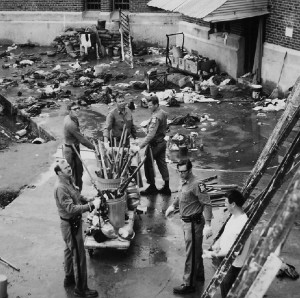
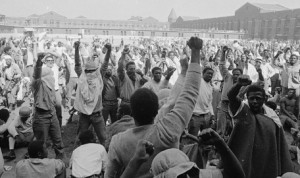
Special on Mass Incarceration : Socialism and Democracy – Lessons from Attica: From Prisoner Rebellion to Mass Incarceration and Back
Fyodor Dostoevsky’s observed that “the degree of civilization in a society can be judged by entering its prisons.” Our guest Dr. Heather Ann Thompson reports in her recent article Lessons from Attica: From Prisoner Rebellion to Mass Incarceration and Back, that according to the Prison Policy Initiative, by 2011 the United States was confining “more than 2.4 million people in 1719 state prisons, 102 federal prisons, 2259 juvenile correctional facilities, 3283 local jails, and 79 Indian Country jails as well as in military prisons, immigration detention facilities, civil commitment centers, and prisons in the U.S. territories.
Dr. Heather Ann Thompson:
- Its important to really examine the broader history of prisons and criminal justice because trying to explain how we became the world’s outlier with so many incarcerated and such a hugely disproportionate number being persons of color, we have a lot to explain.
- Something very clearly happened after the 1960s to our criminal justice system, even more specifically after 1971. Clearly it had a lot to do with the rebellions of that period.
- Sorting all that out is what I’ve been doing for the last decade.
- Just like had happened after the civil war, sort of the first great moment of civil rights unrest in this country when we had 4 million newly freed African Americans demanding a real voice in our society, and meaningful equality.
- The response of that society, in that case, in the South, was to change all the laws. To all of a sudden criminalize black spaces in new ways and almost overnight southern prison institutions not only exploded in population but they went from being all white to all black.
- You fast forward to the 1960s and I think something similar happened.
- Many northern politicians begin to conflate urban protest and unrest, the slow pace of the equality and gains with crime, and began a war on crime in 1964 with Lyndon Johnson before there was immediately impressive rise in crime.
- We need to know much more about the people that were inside the prison walls.
- What happened in the American prison system that we see today, what seems to be the ultimate control, the ultimate punitive penal state.
- One of the long standing lawyers in this case Elizabeth Fink fought this battle on behalf of the Attica brothers for decades and decades. These are the people who are the real repository of that history.
- My role as a scholar, what I tried to do was rescue for the American public, some of those hidden histories. You had a 4 day congregating thousands, 1300 men inside of a penal institution that were willing to stand together and black, Puerto Rican, white and say to the state, we’re willing to negotiate with you logically and in good faith to try to improve the conditions under which we live.
- What made it so really remarkable was the world’s attention was focused on it. Everybody was watching Attica.
- But ultimately, New York state was unwilling to give in on the most important demand which was amnesty.
- Amnesty for which once they surrendered, they would not be charged for any riot-related crimes that the state would alleged they’d committed and an assurance that they would not have reprisals.
- They – state troopers- retook the prison in an utter brutal fashion. They mowed down people first with tear gas then guns, handguns, deer slugs, shot guns, killing scores of people, wounding scores of people.
- Then, realizing the blood bath, officials stood outside and told the world, that the prisoners are the ones that killed the hostages, and from then on tried to control the story, cover up what really happened, that began the 40 year saga of trying to tell the truth of what happened at Attica.
- Had I not met people like Elizabeth Fink who could help me understand this story and had I not spent ten years digging in every knook and cranny to try to uncover the story, this would have been a difficult story to tell because the state has gone to enormous lengths to keep a lid on it.
Guest – Dr. Heather Ann Thompson, is a native Detroiter currently on faculty in the Departments of African American Studies and History at Temple University. In 2015 she will be joining the faculty of the University of Michigan in Ann Arbor. Thompson has just completed the first comprehensive history of the Attica Prison Rebellion of 1971 and its legacy for Pantheon Books.
—–
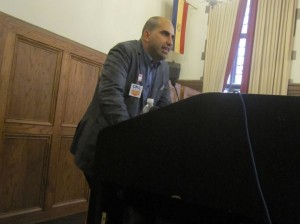
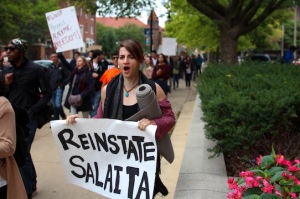
Professor Sues University of Illinois Over Firing for “Uncivil” Gaza Tweets
We bring you to a press conference held in New York City last week at the Center for Constitutional Rights. The Center is representing Professor Steven Salaita along with the Chicago civil rights law firm of Loevy & Loevy. Salaita was hired and then discharged before he could even start his job last summer at the University of Illinois. He was hired by the American Indian Studies program after a thorough vetting. After Israel attacked Gaza where some 2000 people were killed including 500 children. Salaita tweeted several what were termed “uncivil” messages on his twitter account. This was brought to the attention of Zionist donors to the University of Illinois who then pressured Chancellor Phyllis Wise to rescind the hiring. Professor Salaita’s case is probable the most important case in 50 years, not since the 60s when the Supreme Court overturned the non-communist loyalty oath has an issue of this importance arisen. Some 6000 professors have vowed to boycott the University of Illinois.
——-


Greece’s Left-Wing Coalition Wins Majority
Last week in a historic election, the Greek people voted in the anti-austerity party of Syriza, led by Alexis Tsipiras winning a 149 seats of the 300 seat Parliament. In the previous 8 years, the Greek people have demonstrated massively, occupied government buildings and have gone on more than 30 general strikes. Now they’ve formed a party to take back power in government to effectuate a program that will call for cancellation of debt, nationalization of the banks, and expropriating closed factories. Will their attempt to alleviate much of the misery of the Greek population succeed? We’ll see.
Dan Georgakas:
- Austerity in Greece means 26 percent unemployment for at least 3 years, 60 percent unemployment for people under 30 which has caused 200 thousand college graduates to leave the country in the last 2 years.
- Greece had the lowest pensions in the EU.
- Wages which were the lowest in Europe were cut about a third.
- Prices in Greece are about the same in the EU elsewhere.
- 300 thousand businesses failed as of 2013.
- What austerity does, having taken away people’s money is raise the property tax and raise the gas and electric taxes.
- It’s a pretty desperate situation, food lines, there’s been a mass movement from the bottom.
- There are a lot of small left wing parties in Greece.
- What Syriza did was put together a coalition of left parties. That was very difficult to do because within the coalition there are Trotskyists, there are Euro-communists, environmentalists, anarcho-syndicalists and so getting to all those people into one room and agreeing on a program is not a very easy thing to do.
- But Syriza itself isn’t there for a traditional party. It is a coalition of parties that probably will transform in time perhaps into a coherent party.
- I would say that if anything characterizes the profile of Syriza its very anti-Stalinist. It wants to go from the base up and talks a lot about horizontalism.
- It’s quite a weak economy and say it will take decades to repair.
- In the minds of the leadership is capitalism and prosperity are incompatible.
- The steps they want to take are very modest, beginning with changing some of the cuts they made in the past, and beginning to deal with the corruption and tremendous waste of money.
- Same day he was inaugurated, he (Alexis Tsipras) went to Kaisariani where 300 Greeks were massacred by the Nazis as they were departing Athens. Most of the people massacred were communists or resistance fighters. Going there after being sworn as prime minister and laying a rose on the graves, he really served notice on the Germans that the days of us kowtowing and being bullied by you are really over and don’t you dare call us pigs anymore.
- People who contact me say that people are euphoric in Athens.
- We realize that the loans to Greece are really self serving. For instance, Goldman Sachs, arranged for Greece to enter the Eurozone in the first place by totally fraudulent cash arrangement.
- They loaned Greece money at a special rate so Greece could pay off its debt to look like it was solvent and then issued new bonds at even higher rates.
- pressproject.gr
Guest – Dan Georgakas, regular columnist for the National Herald, the leading Greek American weekly newspapero co-author of Detroit: I Do Mind Dying and coeditor of Solidarity Forever: An Oral History of the IWW. He was a frequent contributor to now defunct Journal of the Hellenic Diaspora and the Journal of Modern Hellenism. Dan has taught at NYU, CUNY, Van Arsdale Labor College, Columbia University and University of Oklahoma.
—————————————————————-

Please help support Law and Disorder by clicking on Fractured Atlas graphic. This radio show is now a sponsored project of Fractured Atlas, a non-profit arts service organization. Contributions for the charitable purposes of Law and Disorder must be made payable to Fractured Atlas only and are tax-deductible to the extent permitted by law. You can donate as little as 5.00 a month.



























